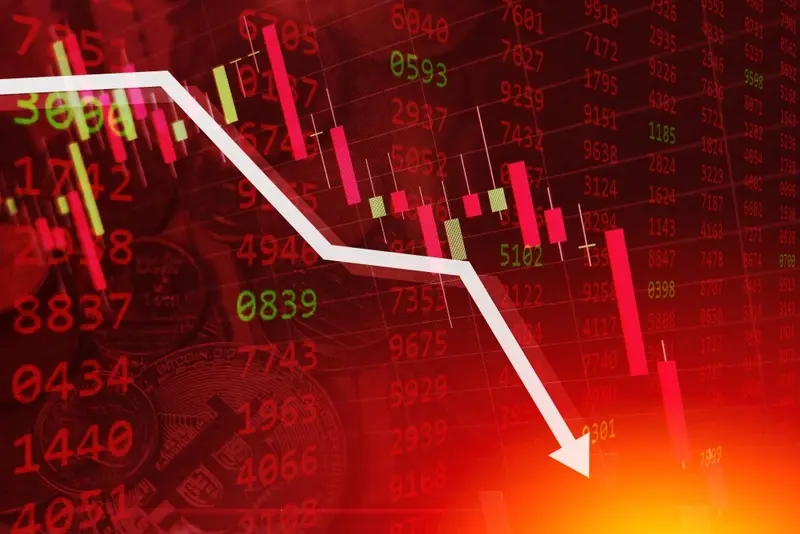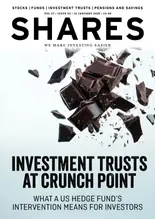
London's blue-chip index lagged behind its European counterparts on Wednesday, as falls in oil and mining stocks offset gains for energy suppliers.
The FTSE 100 index ended down 62.61 points, 0.9%, at 7,237.83 on Wednesday. London's blue-chip benchmark failed to make it a fourth successive day in the green.
The mid-cap FTSE 250 index fell 9.36 points, or 0.1%, at 18,811.48. The AIM All-Share index added 0.59 of a point, or 0.1%, at 865.97.
The Cboe UK 100 index closed 0.7% lower at 724.40. The Cboe 250 inched up marginally to 16,225.58, and the Cboe Small Companies ended down fractionally at 13,645.97.
In mainland Europe, the CAC 40 in Paris ended marginally higher, while the DAX 40 in Frankfurt climbed 0.4%.
US stocks were on the up. The Dow Jones Industrial Average was 0.7% higher at the time of the closing bell in London. The S&P 500 and the Nasdaq Composite were up 0.9%.
The pound was quoted at $1.1469 late Wednesday, down from $1.1531 at the London equities close on Tuesday.
Sterling climbed above the $1.16 mark on Tuesday, but succumbed to recession worries on Wednesday. It fell to its lowest level against the dollar since 1985. At the start of 2022, sterling bought around $1.35.
‘Whether central bankers, economists and politicians become alarmed by dollar strength (should it continue) remains to be seen, as domestic currency weakness means imports are more expensive and that can stoke inflation even if exports may get a boost,’ AJ Bell analyst Russ Mould commented.
Focus continued to be on Westminster. New UK Prime Minister Liz Truss named her top team overnight, before taking on opposition Labour Party leader Keir Starmer at her first stab at Prime Minister's Questions.
Starmer hit out at Truss's opposition to a windfall tax on companies. Truss, however, said such a tax would put companies off from investing in the UK, and as she stuck steadfastly to her low-tax guns, the dividing line across the middle of the chamber grew ever wider.
Hopes of evading a windfall tax lifted shares in energy supplier SSE and British Gas owner Centrica. The duo rose 4.5% and 2.1%, top of the pile on London's FTSE 100.
The euro traded at $0.9945 late Wednesday, up from $0.9910 late Tuesday. Against the yen, the dollar was quoted at JP¥144.45, up from JP¥142.90.
The European Central Bank will announce its interest rate decision on Thursday at 1315 BST. The bank is set to carry out just its second interest rate hike in over 10 years. Markets are somewhat divided about whether the ECB will announce another 50 basis point hike, or dig deeper with a 75bp lift.
Brent oil was trading at $89.34 a barrel at the time of the London equities close on Wednesday, down from $93.17 late Tuesday and falling below the $90 mark for the first time since Russia invaded Ukraine.
Shares in oil majors Shell and BP fell 1.7% and 2.3%, hitting the FTSE 100.
The blue-chip benchmark was also hurt by share price fall for the mining sector, following less-than-stellar data from China. Glencore, the worst of the lot, fell 2.8%.
China - a major buyer of metals - saw a slowdown in import and export growth during August.
Back in London, Avon Protection jumped 33%. It won an order worth over $15 million with the the US Department of Defense. It also reported an improved second half of its financial year.
Trading in the second half of its current financial year, which ends September 30, has improved as expected, Avon said. The company cited a ‘modest improvement’ in mix in its respiratory portfolio and the commencement of body armour deliveries for the stronger performance.
The personal protection company's stock has taken a beaten recently. Shares have fallen roughly 40% over the past 12 months.
Avon dropped out of the FTSE 250 in September last year, following a guidance cut a month prior due to delayed deliveries. It then in October 2021 lowered its margin guidance further and in November of the same year started a review of its body armour business, deciding the month after to wind down the unit.
Cineworld, which has also endured a turbulent time of late, ended 10% higher on Wednesday.
The company said it has begun chapter 11 bankruptcy proceedings in the US Southern District of Texas.
‘As part of the chapter 11 cases, Cineworld, with the expected support of its secured lenders, will seek to implement a de-leveraging transaction that will significantly reduce the group's debt, strengthen its balance sheet and provide the financial strength and flexibility to accelerate, and capitalise on, Cineworld's strategy in the cinema industry,’ Cineworld said.
The picturehouse operator cautioned that the de-leveraging transaction will result in a dilution of shareholder equity.
It added: ‘Cineworld currently anticipates emerging from Chapter 11 during the first quarter of 2023 and is confident that a comprehensive financial restructuring is in the best interests of the group and its stakeholders, taken as a whole, in the long term. Cineworld looks forward to working with its creditors and stakeholders to advance the group's efforts to restructure its balance sheet.’
It has secured commitments for a roughly $1.94 billion debtor-in-possession funding facility from some existing lenders. It will be ‘business as usual’ for Cineworld as the process goes on, it said.
Cineworld in August said it was considering its options, with US chapter 11 bankruptcy one of the moves it mulled. Cineworld had said recent admission levels have been below expectations, due to what it called a weaker film slate.
Gold was quoted at $1,711.32 an ounce late Wednesday, up from $1,702.85 on late Tuesday.
Thursday's economic calendar has GDP data from Japan overnight, the ECB interest decision at 1315 BST, before the latest US jobless claims data at 1330 BST.
The local corporate calendar has annual results from cybersecurity firm Darktrace, and half-year numbers from industrial turnaround specialist Melrose and Wagamama owner Restaurant Group.
Copyright 2022 Alliance News Limited. All Rights Reserved.




